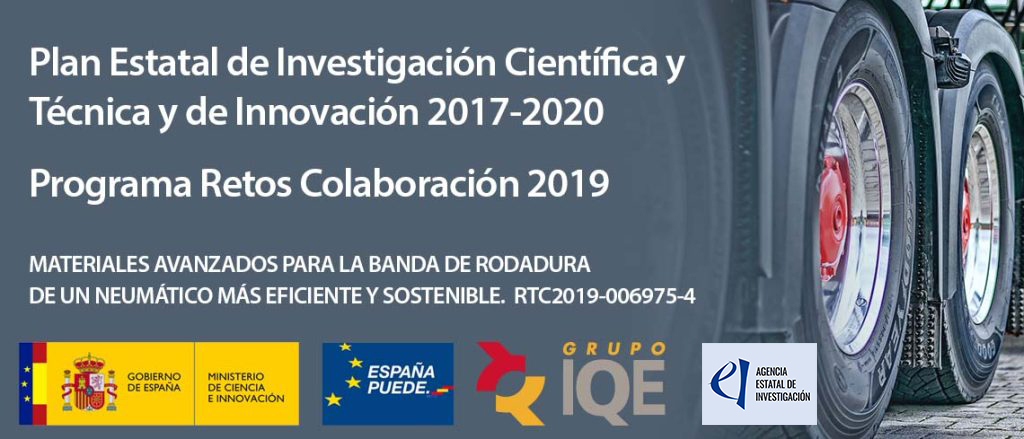IQE launches the SOS-NEUMAT PROJECT that investigates new uses of precipitated silica in TBR tyres on heavy vehicles.
Industrias Químicas del Ebro, S.A. (IQE) with the support of the Ministry of Science and Innovation, through the RETOS COLABORACIÓN 2019 Programme, is researching into improvements in tyre treads for heavy vehicles within the SOS-NEUMAT project: ADVANCED MATERIALS FOR A MORE EFFICIENT, SUSTAINABLE TYRE TREAD (Ref: RTC2019-006975-4). The Project is a joint collaboration between the company IQE and the ITAINNOVA Institute of Technology. The aim is to develop a formulation that allows fuel consumption to be reduced, while also improving its eco-labelling. The tread is probably the most critical part of a tyre;
it is the thickest part and that which most influences its performance. It is the vehicle’s only point of contact with the ground and this means that during service it suffers the greatest wear (abrasion) and has to provide vehicle grip and traction. It is also the part that contributes most to energy loss in the vehicle’s movement through rolling resistance (the amount of energy that the tyre absorbs when it rolls under the weight of the vehicle). It is estimated that a decrease in rolling resistance of 10% represents a reduction of between 1.5-2% in fuel consumption in cars. [International Council on Clean Transportation (ICCT) (2012), “Influence of rolling resistance on CO2”, Series: Worldwide Harmonized Light Vehicles Test Procedure (Wltp), Working Paper 2012-6, ICCT, Washington, DC].
The reinforcement filler together with the polymer and the vulcanization system are the main elements of the tread of any tyre and are those that have the greatest influence on the tyre’s behaviour.


